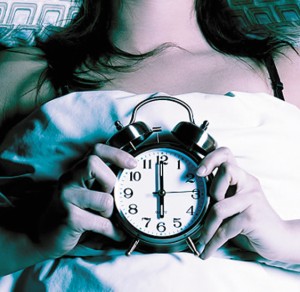By Harmony Brown, AP –
 If you are like 51% of Americans you have difficulty sleeping at least a few nights a week. Insomnia is a broad term to describe a wide range of sleep disturbances including: night waking, restless/fitful sleep, waking too early, difficulty or inability to fall asleep, or dream disturbed sleep. The health implications of insomnia are staggering and they have reached epidemic proportions in the US. If you suffer from sleep disturbance a few nights/week you are at increased risk for: heart disease, stroke, illness such as colds, infections or the flu; memory/cognition disturbances, anxiety and depressed mood, diabetes, systematic inflammation, and weight gain.
If you are like 51% of Americans you have difficulty sleeping at least a few nights a week. Insomnia is a broad term to describe a wide range of sleep disturbances including: night waking, restless/fitful sleep, waking too early, difficulty or inability to fall asleep, or dream disturbed sleep. The health implications of insomnia are staggering and they have reached epidemic proportions in the US. If you suffer from sleep disturbance a few nights/week you are at increased risk for: heart disease, stroke, illness such as colds, infections or the flu; memory/cognition disturbances, anxiety and depressed mood, diabetes, systematic inflammation, and weight gain.
Understanding the difficulties that lead to Insomnia and sleep disturbance can be quite complicated. Eastern & Western medicine offer insight into today’s ever growing epidemic.
A Western Perspective
Stress: Hands down stress is the most frequent offender for sleep disturbance. With concerns about work, school, health, family, children, finances, and relationships, our list of stressful factors go on and on. These stressors accumulate in our world and intrusively interrupt our thoughts during those still quite moments, when we are trying to sleep. Stressors don’t have to be events or circumstance we view as bad but can also be those things we are looking forward to enjoying like vacations, promotions, or family coming to visit. Regardless of the content, stressors can be identified as those factors that push their way into our quite still moments without an invitation. As these stressors accumulate and continue to disrupt our much needed sleep, we experience inner angst and anxiety – and the cycle continues as does our loss of sleep.
Medical Conditions: Chronic pain is the most likely offender to interfere with sleep. It is all too common for my clients to explain and inability to get comfortable and fall asleep. If they finally do fall asleep, they are awakened with discomfort and unable to get back to sleep. A cycle begins, lack of sleep exacerbates pain and pain interferes with sleep.
Medications: Many people do not realize that even common medications can disturb sleep. Some antidepressants, blood pressure medications, allergy medication, steroids, and even over the counter medication can disturb sleep. The more medication you take, the more likely you are to experience insomnia caused by medication side effects.
Lifestlye: Never underestimate the choices we make on a daily basis that affect a good night’s sleep. Eating too late, eating too much, drinking alcohol, or consuming caffeine late in the afternoon all negatively impact sleep.
Treatment from the Western Approach: Traditional western medicine focuses on treating the symptom (loss of sleep), and often does so through the use of prescription or over the counter medications to induce sleep. In fact, the use of prescription sleep aids doubled from 2000-2004 and the number of children under the age of 18 who were prescribed sleep medications skyrocketed 85% in the same period. This approach focuses on symptom resolution without addressing the imbalance creating the symptom. While sleep medications can be very effective in inducing sleep, they stop working when you stop taking them, and long-term is habit forming. This only reinforces the insomnia cycle.
Eastern Perspective: Traditional Chinese Medicine breaks insomnia into four types: “Difficult to sleep” – inability to fall asleep; “early awake” – those who fall asleep but wake repeatedly throughout the night; “light sleep” – those who never achieve a deep sleep or who are disrupted by dreams or nightmares; and “awake all night” – the most serious and often most complex type, refers to patients who lie awake the entire night. Let’s take a deeper look at 3 of the 5 most common types of insomnia in Chinese Medicine:
Stagnation of Liver Qi Transforming into Liver Fire: This is an excess pattern, where the primary cause is prolonged emotions such as anger, suppressed depression, shock or worry creating stagnation of liver qi (energy). This describes the “difficult to fall asleep” pattern. There is an inability to fall asleep, possibly taking hours, and may be followed by vivid dreams. Other symptoms that can accompany this pattern include red burning eyes, frequent tension headaches, a quick temper, and/or irritability.
Disturbance of Phlegm-Heat
This excess pattern is due to poor lifestyle choices such as over-eating or over-drinking, and is seen in patients whose diets have become habitually unhealthy. These cases usually have a pre-existing deficiency of spleen qi (energy), creating metabolic or digestive impairments.
Hyperactivity of Fire Due to Yin Deficiency
This deficiency pattern is unfortunately very common. This pattern accounts for the “early awake” and “light sleep” types. Patients with this pattern feel nervous, often experience various anxiety disorders and/or chronic worry, and wake with racing thoughts.
Treatment from the Eastern Approach
Traditional Chinese medicine and Acupuncture seeks to restore balance to the body and resolve insomnia from a systematic perspective. Acupuncture has been proven to be greatly effective in the treatment of insomnia. In 2004, the NIH found patients with insomnia and anxiety disorders treated with acupuncture increased nighttime melatonin production and total sleep time. In addition, those who received acupuncture also fell asleep faster, were less aroused at night, and were less stressed.
When treating insomnia, acupuncture targets points that have strong sedating qualities (points on the wrist, ear and between the eyebrows). When these points are needled, the brain releases natural opiates; patients feel calm, relaxed and often fall asleep in the treatment room. They wake feeling relaxed and refreshed. Acupuncture is also effective in treating those conditions that are cyclic in nature with insomnia. Its effects are widely hailed in treating chronic pain and reducing overall stress. Acupuncture restores emotional ease and promotes restful sleep.
The real beauty of acupuncture is in its practice of treating the root cause of the imbalance. Acupuncture can nourish and balance the organ systems restoring qi, blood and yin and eliminating disease patterns. As you get relief from insomnia, you are also correcting a dis-ease state and creating a healthier, insomnia-free future.
At Integrative Acupuncture we work with patients everyday who are suffering from insomnia and other variations of health issues who have searched for answers and relief from the Western Medicine perspective without avail. Using our integrative approach, blending Eastern and Western philosophies and treatment strategies we offer solutions to your underlying conditions and help you regain control of your good health.
For more information about taking control of your health contact our office for a consultation 561-819-0530.
Check Also
Sensational News! The most powerful Hyper Pulsed Laser comes to Palm Beach County!
In an era where age-related lumbar spinal stenosis has reached epidemic proportions, a revolutionary treatment …
 South Florida Health and Wellness Magazine Health and Wellness Articles
South Florida Health and Wellness Magazine Health and Wellness Articles




